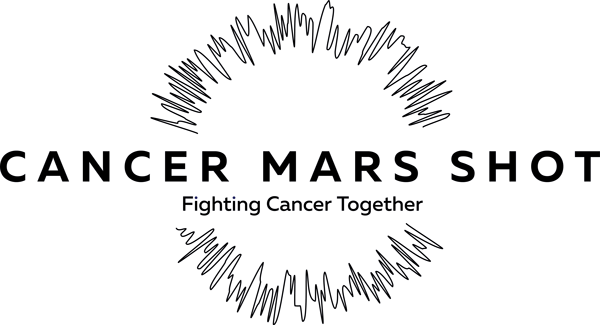Audubon’s Oral Paper Presentation at the ISBER 2023 Annual Meeting

Audubon Bioscience was honored to present an oral paper at the 2023 International Society for Biological and Environmental Repositories (ISBER) Annual Meeting Hybrid. The presentation shed light on the unique challenges and experience of Audubon Bioscience during the recent Russian invasion of Ukraine on February 24th, 2022. It also provides insights into the strategies we employed to overcome obstacles and maintain the integrity of our biobank during challenging times.
This article summarizes the transcribed version of the oral presentation titled "Biobanking during War: The Experience of Audubon Bioscience", delivered by Alexandra Giardina, Senior Operations Director for Audubon Bioscience.
About Audubon Bioscience
We are an innovative provider of high-quality biospecimens and associated clinical information. We operate as a contract research organization as well as a biobank. We focus primarily on prospective investigator-driven collections to provide the most customized samples and data cohorts.
Many of the clients that we give samples to can range from academic institutions to large/small biotech companies to pharmaceutical companies or even companies validating lab equipment. Typically, academic investigators are looking for samples that they can’t otherwise get in their local biobanks.
We've also done work with the CDC and NIH. So there are a huge number of clients that we’re able to give projects to and receive projects from. All of those biosamples are collected with donors' informed consent or an approved waiver of consent with oversight of either an IRB or Ethics Committee, depending on where we are collecting at.
We were founded in New Orleans, Louisiana in June of 2016. Our current headquarters is in Houston, Texas. However, over 30 % of our employees, including our CEO, are Ukrainians. Our mission is to provide biospecimen solutions to researchers from various medical fields to support the discovery of life-saving diagnostics and treatment.
Our Global Presence
Our team, around February of 2022, last year, was made up of about 40 team members. About 20 of those employees were from our corporate office (mostly directors and our legal team) and we had clinical partnerships with about 35 Ukrainian clinics and hospitals.
We were actively working on 37 projects, and I'll say most of the projects are prospective, investigator-driven projects. But some projects were going towards our internal biobank collection. Ukraine country operations accounted for about 40 % of all of our company activity.
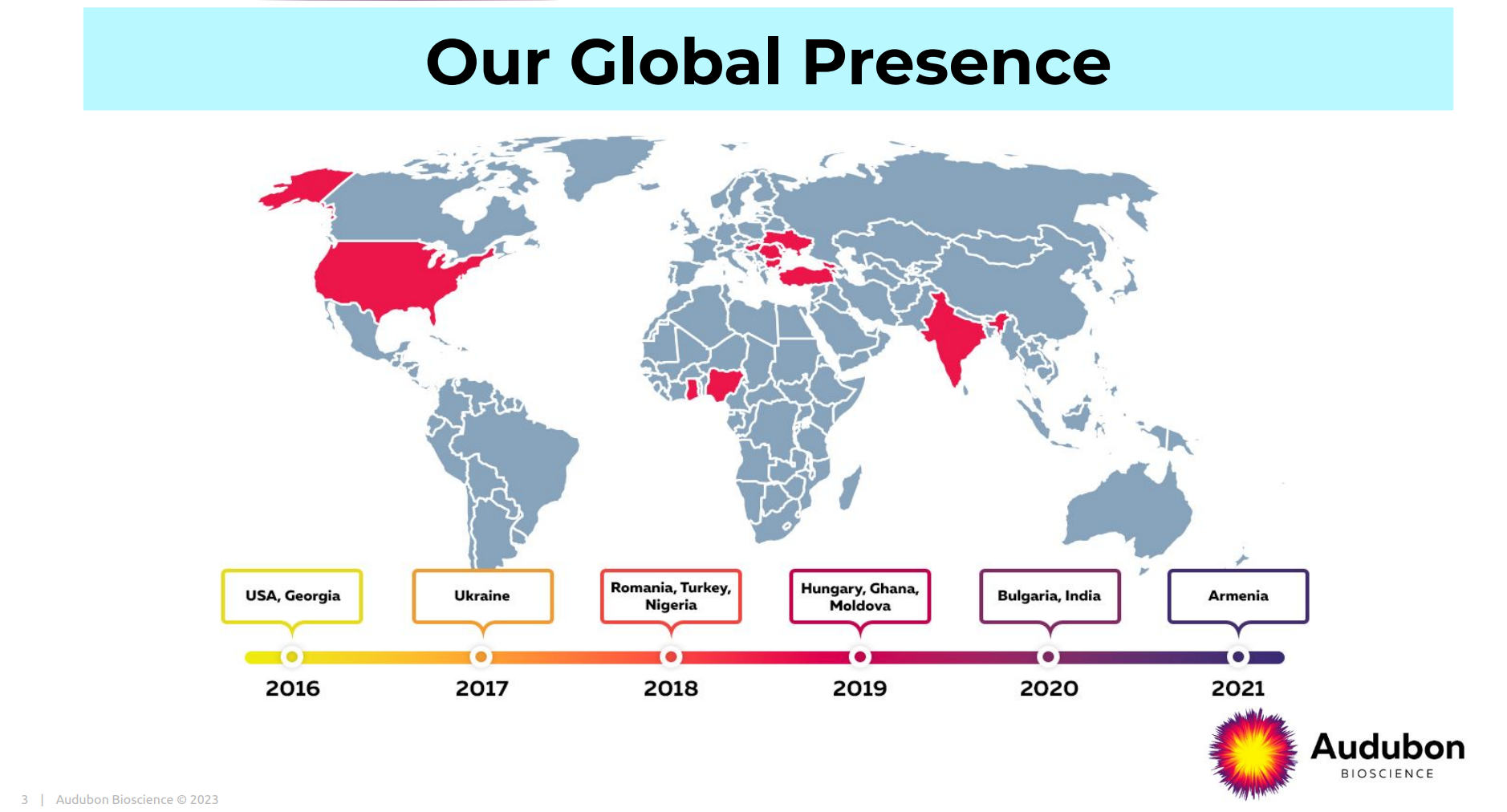
Preliminary Planning Phase (PPP)
Just seven months before the war (back in July of 2021), our Ukrainian team celebrated its fifth anniversary with a company retreat. It just speaks a lot to me to see everybody together, happy, really celebrating, and being able to successfully procure samples for future diagnostic and research use.
We gathered to team build and listen to experts in various fields. Our team got together to discuss, analyze, and dream about the future. It was a great time. So it's really unfortunate that just seven months after this picture, we were in the stages of our preliminary planning phase to bring awareness of the seriousness of a potential interruption to not only our local team there but our global team.
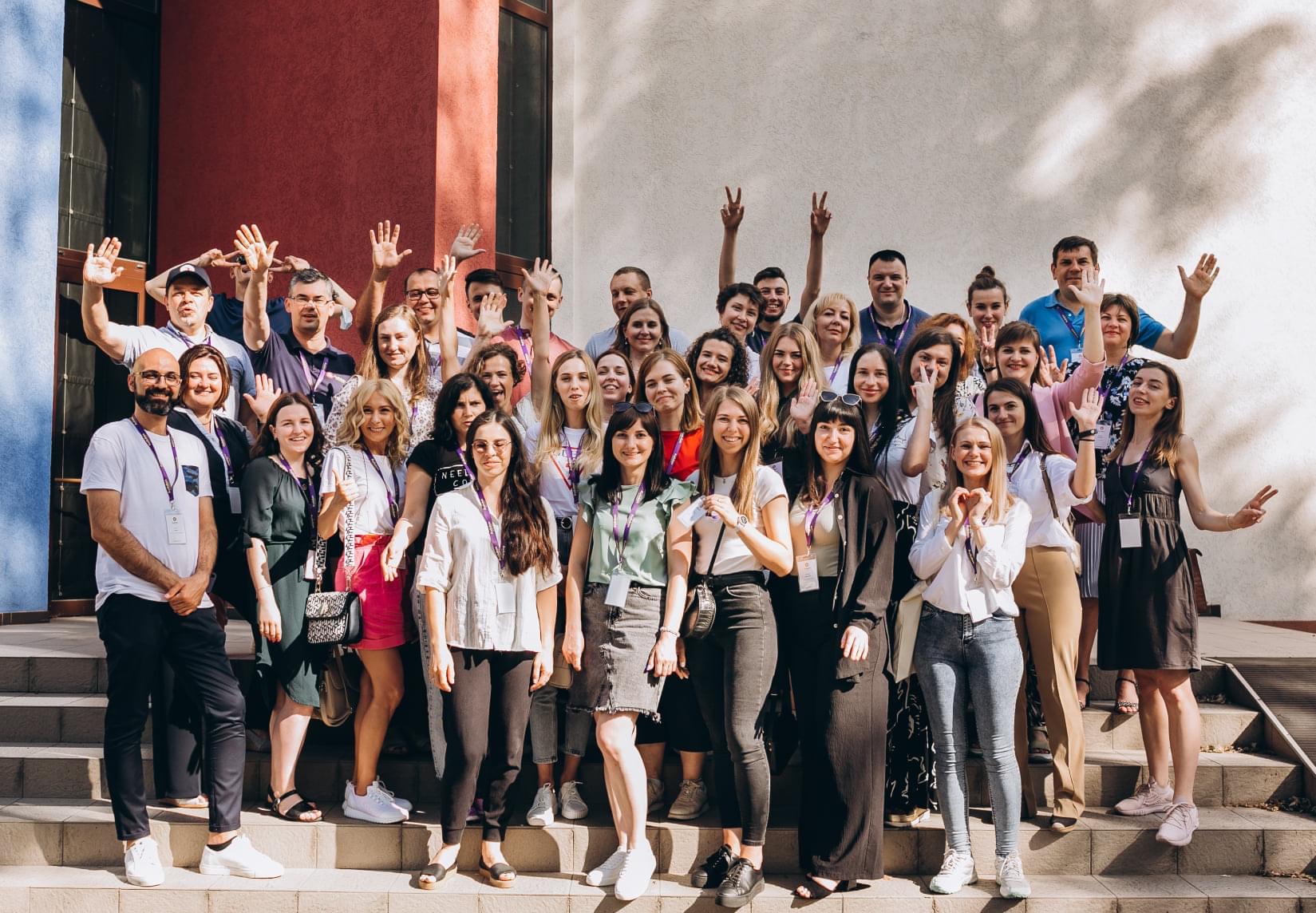
Business Contingency Plan (BCP)
A company-wide email was sent out on February 1st, 2022 from our CEO and HR directors in Ukraine to just let everybody know that we could be facing serious interruptions in our business. Our top management came together to construct a business contingency plan. Two weeks after that, we presented this plan on February 14, 2022, to discuss and finalize it immediately.
We like to focus on the fact that our human resources, operations, and revenue divisions really worked fluidly and came together with options on how to smoothly transfer. Most importantly, we came up with plans to transfer our people, our projects, and then our biospecimens that were within our biobank, as well as data.
Proposed Options For Employees
What would trigger this activation of our plan? Any signs of escalation or official requests from authorities to evacuate from Kyiv. We proposed this for our employees to help them in the event of any escalation to evacuate Ukraine to Turkey (plan A). We did not fulfill this plan. It was just too fluid of a situation. It was too difficult to try to figure out.
Then we had (plan B) for the evacuation of our colleagues and their families to Western Ukraine, which is mostly what we did. Then plan C, the organization of work and life while staying in Kyiv. Some employees stayed behind and did that.
All of the plans of action could be difficult because of the following limitations. Anyone that's in the planning stages for emergency preparedness is aware of these limitations:
- Roads closed
- Airports closed
- Mobile/internet connection cut off
- Bank payments stopped
- Inability to buy fuel/food/medication etc.
- False news and propaganda influence
- Riots/strikes/looting etc.
To help our employees, we sent all of our colleagues in Kyiv with these little backpacks with a paper map inside of them. We sent to the employees that weren't able to come to the office to pick them up. They were instructed on how to keep in contact and communicate with top management, which included me, to help them get where they needed to go and to be a resource to them. We also rented a home in Western Ukraine a few days before the war started so that along their travel, they would have a place of refuge and a place to stop.
February 24, 2022
On February 24th, 2022, a large-scale invasion severely interrupted our Ukrainian operations. We were preparing, but you can never be completely prepared. It's impossible. Our team faced many challenges, both locally and then to our global team. Relying so much on Ukraine for our operations really taught us a big lesson about that. We preliminary planned and anticipated this disruption and had a human resource, revenue, and operation plan in place.
I'll say the biggest thing that I think worked in our favor was our team's amazing communication. Communication is key. It keeps everybody out of chaos. We organized real-time evacuation with our staff, with the documents, laptops, and ambient specimens to the Western region of Ukraine.
The colleagues were advised to keep all of their work and files on shared Google Drive. This Google Sheet, I'd say, was very, very helpful for us. We gave access to our local Ukrainian employees to constantly keep us updated on where they were, where they were going, who they were with, and if any of their plans were going to be changing.
And we also used Slack as a tool. It's like a Facebook messenger for work, just constantly texting, to check in with every single person on that particular day to make sure that they are okay.
Also within the Ukrainian operations, just locally for them, they were using a lot of telephones in the event that actual internet was not available where they were. It was pretty spotty.
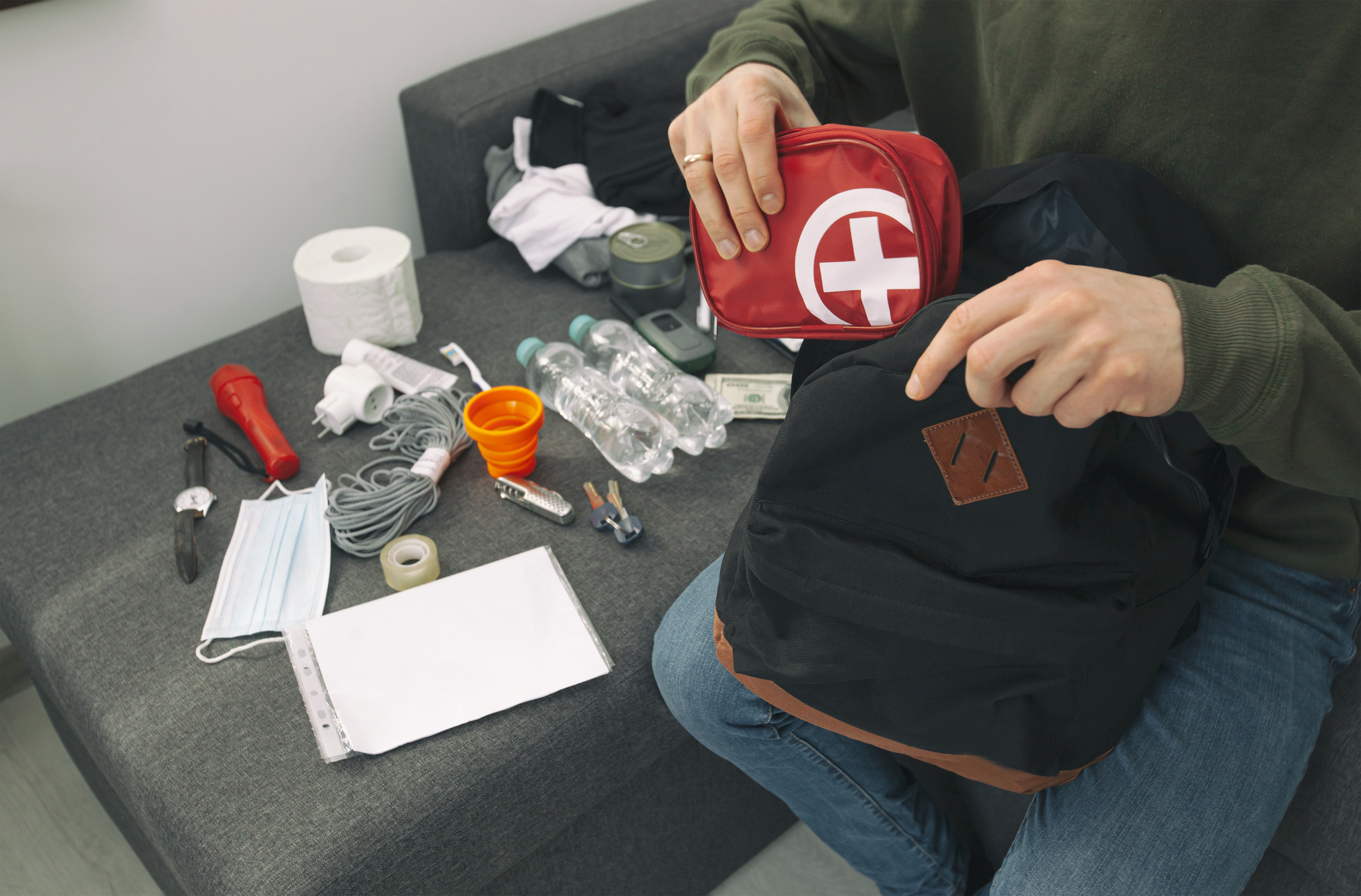
Human Resource Execution Plan
About 2-3 days into the war, we instructed our colleagues to start moving toward Western Ukraine. We were constantly communicating with those who were evacuating and offering any type of support that we could, coordinating accommodations, stipends, and financial assistance with travel costs.
Our top management did a temporary salary reduction for 3 to 6 months. As we know, Ukraine was such a huge part of our company that there were large-scale things in our contingency plan that needed to take place in order for us to sustain this loss of operations.
To continue our company operations, business, and revenue plan execution, we moved all active projects. For those 37 projects that I mentioned before, we started to move them to other country sites - talking with our Turkey, USA, Nigeria, Bulgaria, and Romania operations that gladly took on these projects.
We immediately informed our clients that the projects would change. For example, approvals would be affected, and their supplies or kits were affected or potentially damaged, potentially left at the hospitals. And they were very understanding of these circumstances.
Operations (Specimen/Data) Plan Execution
We focused on essential operations only; their assessment and data plan execution. The prospective and banked collections were stored mostly in our office in Kyiv, in minus 80 freezers (we had four of them). We maintained a stable electrical supply with backup generator power. There were planned blackouts, but we had external alarms and temperature loggers, which were on each of the freezers.
We did our best to ship as much as we could out in the coming weeks before the actual start of the war. However, for ambient specimens, we did come up with a plan to get them out. The blocks were put into boxes and evacuated with employees to Western Ukraine. The data and paper records were scanned into our Google Drive a few days before the war, and then they were packed into lidded pre-labeled boxes and also moved with our employees to Western Ukraine.
We had agreements in place with a local transport company in case of a large-scale transfer of equipment and samples. In April and May of 2022, 2-3 months after the start of the war, some employees were able to gain back access into the lab to get the prospective cases out and transfer them to the clients and check the data monitors and the freezer temperature logs. I'll say that our clients reported back to us that the samples were of fine quality.
The Experience of Audubon Bioscience
Also in June of 2022, all of those FFPE blocks that made it to Western Ukraine were then sent by car to Romania and delivered to New Orleans, for permanent storage. Myself and my New Orleans team matched up every single FFPE block against the data spreadsheet and put them in order. It was about 15 or 20,000 blocks. That's a lot.
For our recovery and outlook, we felt that by reaching out to our partners immediately upon the war starting with updates and a clear plan, we had high client satisfaction. Everyone was very understanding of the circumstances. It was well beyond what we expected.
We felt like the measures that we took with our HR choices to decrease our salaries and let go of some of the employees that were not technically essential in other country sites really helped us out. I will say we also had really great new partnerships gained from this experience as many other research groups and hospital systems wanted to help us in humanitarian and educational missions. By the end of 2022, we did have a significant recovery.
Our revenue for March and April of 2022 took a deep dive, but we were able to bounce back up in the last few months of 2022 to level ourselves out. We sustained significant losses, obviously, due to the war. We ended the year with about $300,000 in loss when we tallied it up. But overall, it was much less than we initially anticipated.
Social Impact
On a different note, because of this experience, we had much of a social impact through our separate Peace and Development Foundation, which was put together by some volunteers as well as our CEO. We developed this foundation. In one year, we were able to donate, raise, and deliver over $300,000 in aid, $60,000 of that being in medical supplies.
We sent generators, wood-burning stoves, and sheepskin boots over to Ukraine to help out anyone that stayed behind there. This got a little bit of traction.
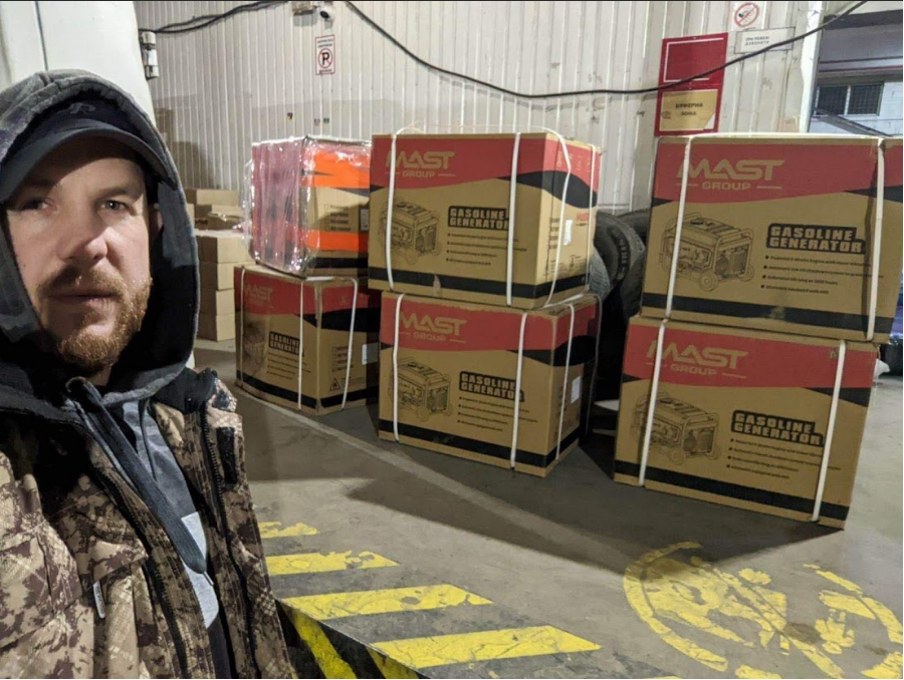
In December of 2022, some lovely colleagues from Vanderbilt University invited our Ukrainian physicians in the transplant world to come to Nashville with the help of Senator Bill First. Also, other hospitals, biobanks, and academic institutions reached out to us to donate supplies.
Locally, I went to LSU in New Orleans. We had them approach us to donate hyperbaric chambers, equipment, and CO2 monitors, and also to volunteer their technician time and go to Ukraine to assist in any training for the hyperbaric chamber. Then from February to April, we've had partnerships with AACR and ASCO to support efforts in bringing the best practices to Ukraine.
Our team was able to negotiate medical internships for some of the Ukrainian physicians for partnerships with US-lead cancer centers or biobanks.
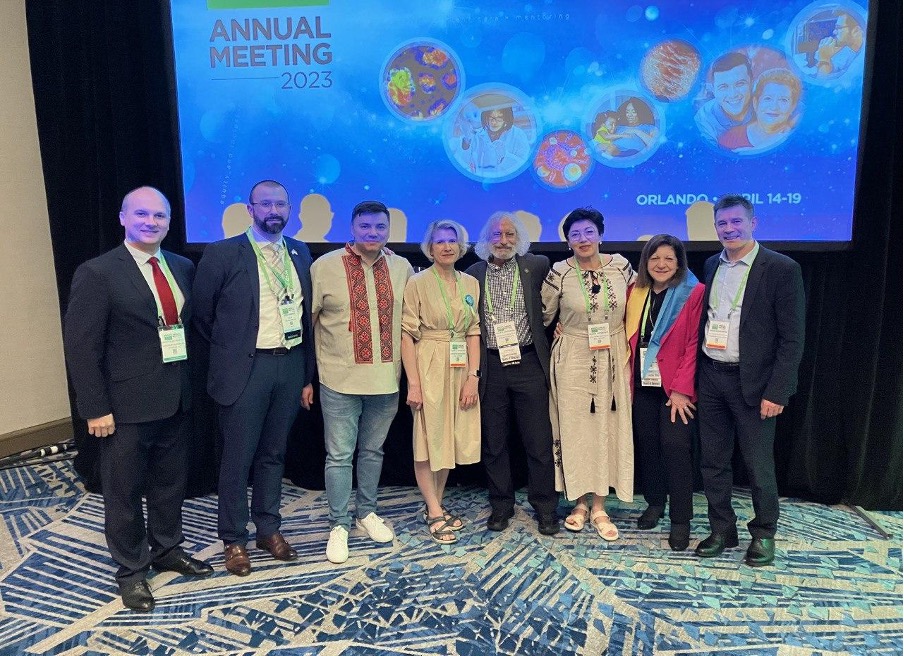
Discussion
The discussion following the presentation revolved around the team’s safety, ethical considerations, legal frameworks, and operational protocols that should be in place to support biobanking activities during the war. Attendees engaged in thoughtful dialogue, sharing their experiences and insights on how to address challenges such as resource scarcity, infrastructure damage, and human safety concerns.
The audience commended Audubon Bioscience for their dedication and resourcefulness, recognizing the organization as a valuable source of knowledge and inspiration for others working in similar contexts.
Conclusion
Alexandra Giardina's oral paper, "Biobanking during War: The Experience of Audubon Bioscience," presented at the 2023 ISBER Annual Conference, highlighted the resilience and ingenuity demonstrated by Audubon Bioscience in maintaining biobanking operations during times of conflict. The presentation not only emphasized the challenges faced by the organization but also provided valuable insights and lessons learned for others in the field. Audubon Bioscience's experience serves as a testament to the critical role of biobanks in preserving valuable biological resources and supporting research and discovery, even in the most challenging circumstances.
To get more insights about Audubon Bioscience commitment to supporting the advancement of cancer research by providing high-quality biobanking solutions that empower scientists and clinicians in their quest for breakthroughs, visit our website or speak to a member of our team.

